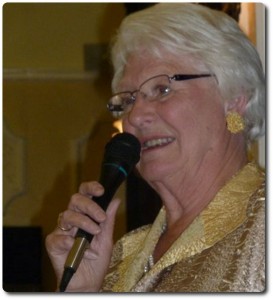 Loading... Please wait...
Loading... Please wait...Categories
Our Newsletter
You Recently Viewed...
Profile
At the near athletics veteran age of 33 few thought Peters, although a world-class performer, could become only Britain's third gold medallist, when following in the footsteps of Mary Rand and Ann Packer, the winners of the long jump and 800m respectively, eight years earlier in Tokyo. Apart from the problems in Ulster, which did not help her preparations, Peters faced one of the world's greatest-ever athletes in Heidi Rosendahl.
Rosendahl possessed phenomenal sprinting and long jumping ability and already the tall West German had won the gold medal in the latter discipline. She also had the added advantage of performing in front of a very partisan Munich crowd. Yet Peters, in her 17th year as a pentathlete, drew measureless courage from the terrible situation on the Belfast streets with an unscheduled victory, which overnight lifted her overnight to celebrity status.
It was Peters' third Olympic Games, having impressed with a fourth place in the 1964 Olympics. But four years later in the dizzy altitude of Mexico City, and carrying an ankle injury, she finished ninth. In her own mind, realistically she knew this would be her swansong on the world's greatest stage.
After slogging for many hours day-after-day in Buster McShane's city centre gym, protected by massive segment fortifications to keep the bombers out, Peters knew only a world-class performance would earn her sport's ultimate award. And that is exactly what the fifth ranked contender in the competition did when her exertions over two days of energetic, tense and nervous running, jumping and throwing, saw Peters set a new world record performance of 4801 points.
She finished a nervous 10 points ahead of Rosendahl with East Germany's Burglinde Pollak a close third on 4768 points. In the process of winning Britain's only gold medal of the 20th Olympiad, Peters was fortunate to succeed in her lifetime ambition just two days before eight Arab terrorists broke into the Israeli's Olympic village accommodation, killing two and holding another nine hostage.
Before that tragic and senseless act of violence, Peters produced three personal best performances in the 100metre hurdles, high jump and 200m while also going very close to her highest ever figures in the shot put and long jump. That was a deserved tribute to her tenacity in a thrilling competition, which had the heartbeats of every Briton and German in the magnificent Olympic complexes pulsing in anticipation for almost 48 hours of nail biting competition.
After the first day's action Peters found herself, after producing a 13.29 second hurdles run, a 16.20m shot put and a high jump of 1.82m, leading the 30-strong field with a score of 2969 points. That was the biggest day-one score ever recorded. But more importantly it gave her a 97 points buffer ahead of everyone's favourite, Rosendahl.
The long jump opened the timetable on the second day. Although achieving a more than satisfactory 5.98m Peters, like the sell-out stadium, was mesmerised when Rosendahl produced a magnificent clearance of 6.83m, just one single centimetre short of the German's three-year-old world record.
Thus the pair lined up for the gruelling pentathlon's finale over 200m. The distance suited the fleet-footed Rosendahl, who later in the 4 x 100m relay would win a gold medal. The silence at the start extended well beyond the Munich Olympic Stadium. In the circumstances there was possibly more pressure on Peters as her rival had already stood on the winner's podium with a priceless gold medal hanging from her neck.
Rosendahl blasted out of her blocks, storming around the half lap in a personal best 22.96 seconds. Crossing the line first, her blistering performance saw her in theory break the world and Olympic records, but that was for a tiny period of only 1.12 seconds. Peters, whose previous fastest time was 24.2 seconds, forced her tired legs to a personal best of 24.08 seconds, although she finished a lengthy distance of 10 metres behind Rosendahl.
The lung-bursting, eyeballs-out sprinting, completed in front of both sets of fanatical supporters yelling tumultuous cheers of encouragement for their own favourite, was followed by another huge silence. After the computer churned out it’s reading, Mary Peters was confirmed as Olympic champion and world record holder.
Then - and even now - Peters who was made a Dame, has been constantly involved in track and field and professing a loyalty to Great Britain and Northern Ireland. Although born on the mainland she has always insisted: “I'm an Ulsterwoman.” Not surprisingly, therefore, her immediate memory when flanked by Rosendahl and Pollak at the medal ceremony makes Peters recall: “It was so fantastic, very emotional, especially when the anthem was played. Even now just talking about it I feel the same about it. It was so exciting.”
At the near athletics veteran age of 33 few thought Peters, although a world-class performer, could become only Britain's third gold medallist, when following in the footsteps of Mary Rand and Ann Packer, the winners of the long jump and 800m respectively, eight years earlier in Tokyo. Apart from the problems in Ulster, which did not help her preparations, Peters faced one of the world's greatest-ever athletes in Heidi Rosendahl.
Rosendahl possessed phenomenal sprinting and long jumping ability and already the tall West German had won the gold medal in the latter discipline. She also had the added advantage of performing in front of a very partisan Munich crowd. Yet Peters, in her 17th year as a pentathlete, drew measureless courage from the terrible situation on the Belfast streets with an unscheduled victory, which overnight lifted her overnight to celebrity status.
It was Peters' third Olympic Games, having impressed with a fourth place in the 1964 Olympics. But four years later in the dizzy altitude of Mexico City, and carrying an ankle injury, she finished ninth. In her own mind, realistically she knew this would be her swansong on the world's greatest stage.
After slogging for many hours day-after-day in Buster McShane's city centre gym, protected by massive segment fortifications to keep the bombers out, Peters knew only a world-class performance would earn her sport's ultimate award. And that is exactly what the fifth ranked contender in the competition did when her exertions over two days of energetic, tense and nervous running, jumping and throwing, saw Peters set a new world record performance of 4801 points.
She finished a nervous 10 points ahead of Rosendahl with East Germany's Burglinde Pollak a close third on 4768 points. In the process of winning Britain's only gold medal of the 20th Olympiad, Peters was fortunate to succeed in her lifetime ambition just two days before eight Arab terrorists broke into the Israeli's Olympic village accommodation, killing two and holding another nine hostage.
Before that tragic and senseless act of violence, Peters produced three personal best performances in the 100metre hurdles, high jump and 200m while also going very close to her highest ever figures in the shot put and long jump. That was a deserved tribute to her tenacity in a thrilling competition, which had the heartbeats of every Briton and German in the magnificent Olympic complexes pulsing in anticipation for almost 48 hours of nail biting competition.
After the first day's action Peters found herself, after producing a 13.29 second hurdles run, a 16.20m shot put and a high jump of 1.82m, leading the 30-strong field with a score of 2969 points. That was the biggest day-one score ever recorded. But more importantly it gave her a 97 points buffer ahead of everyone's favourite, Rosendahl.
The long jump opened the timetable on the second day. Although achieving a more than satisfactory 5.98m Peters, like the sell-out stadium, was mesmerised when Rosendahl produced a magnificent clearance of 6.83m, just one single centimetre short of the German's three-year-old world record.
Thus the pair lined up for the gruelling pentathlon's finale over 200m. The distance suited the fleet-footed Rosendahl, who later in the 4 x 100m relay would win a gold medal. The silence at the start extended well beyond the Munich Olympic Stadium. In the circumstances there was possibly more pressure on Peters as her rival had already stood on the winner's podium with a priceless gold medal hanging from her neck.
Rosendahl blasted out of her blocks, storming around the half lap in a personal best 22.96 seconds. Crossing the line first, her blistering performance saw her in theory break the world and Olympic records, but that was for a tiny period of only 1.12 seconds. Peters, whose previous fastest time was 24.2 seconds, forced her tired legs to a personal best of 24.08 seconds, although she finished a lengthy distance of 10 metres behind Rosendahl.
The lung-bursting, eyeballs-out sprinting, completed in front of both sets of fanatical supporters yelling tumultuous cheers of encouragement for their own favourite, was followed by another huge silence. After the computer churned out it’s reading, Mary Peters was confirmed as Olympic champion and world record holder.
Then - and even now - Peters who was made a Dame, has been constantly involved in track and field and professing a loyalty to Great Britain and Northern Ireland. Although born on the mainland she has always insisted: “I'm an Ulsterwoman.” Not surprisingly, therefore, her immediate memory when flanked by Rosendahl and Pollak at the medal ceremony makes Peters recall: “It was so fantastic, very emotional, especially when the anthem was played. Even now just talking about it I feel the same about it. It was so exciting.”

